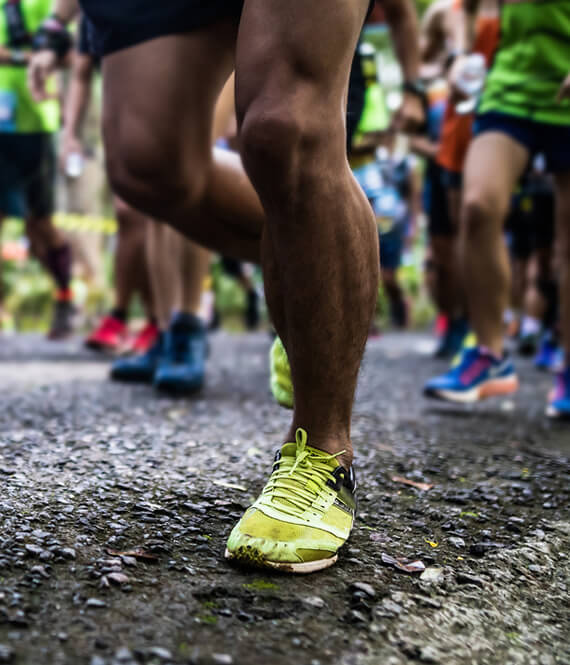
5 Grounding Ways to Lower Sports Anxiety
We recommend helpful products in our articles. Read our full disclosure here. The content on this website is not intended to be a substitute for professional advice, diagnosis, or treatment.
Feeling nervous before a big game or marathon is normal, but sometimes these feelings can overwhelm you.
If you worry about the outcome of your game or match and have trouble sleeping, you may suffer from sports anxiety.
As a sports enthusiast, you know how difficult it can be to play when feeling anxious.
You might feel like you’re choking up, and your heart starts beating faster than normal.
It’s important to understand what sports anxiety is, and learn helpful strategies for coping with it.
In this article, we’re exploring sports anxiety and what science has to say about it.
What Is Sports Anxiety?
According to scientific study, sports anxiety can be defined as a heightened response to a stressful, sport-related situation.
A person with sports anxiety perceives sports events as potentially worrisome, resulting in a range of cognitive, behavioral, and physiological responses.
6 Ways To Cope With Sports Anxiety
1. Breathing Exercises
Breathing exercises help you focus on breathing and calm down when you feel sports anxiety growing.
Even if you’re not an athlete, it’s a good idea to learn basic breathing techniques and use them when you feel stressed or nervous about something.
You can also use these exercises in the middle of a sports anxiety attack to bring yourself back down to earth.
The most basic breathing exercise is to breathe in through your nose, slowly and deeply.
Hold your breath for a few seconds, then breathe out through your mouth slowly.
Repeat this cycle several times until you feel calmer.
You can also try counting out loud or saying something calming to yourself while doing this exercise.
The goal of breathing exercises is to slow down your heart rate by getting more oxygen into your system.
2. Get Some Rest And Fuel Up Right
If doing deep breathing and relaxation exercises doesn’t seem to calm your sports anxiety, take a look at your rest and nutrition patterns.
Are they okay?
Getting rest is important for any mental health issue.
If you haven’t slept well last night, try going to sleep for a few hours or just lying down and resting for 10 minutes.
Also, take a look at your diet.
Is it balanced?
Are you hungry?
Did you eat proper meals?
When you wake up in the morning, do you eat something healthy to give your body the energy it needs?

3. Maintain a Positive Attitude & Visualize Success
If you think you can’t do something, it’s more likely that you won’t be able to do it.
Try thinking positively about things that give you sports anxiety – such as performance tests, competitions, games, or matches.
For example, if a match is coming up and it gives you sports anxiety, visualize yourself doing great at it.
Positive visualization is a scientifically proven way to improve athletic performance and prepare yourself for better outcomes.
Also, take a moment to remember and think about what you need to do to perform well in the match (like paying attention to the coach’s instructions).
Sometimes, proper preparation can work really well as anxiety relief.
4. Use Goal-Setting to Stay Motivated
Studies show that setting goals and working toward them can also help to reduce sports anxiety – and even improve your performance.
If you are nervous about participating in a sports event, set small goals to help you prepare for it.
Not only will you prepare better, but you will also benefit from increased dopamine by completing your mini-goals.
Having a goal can also give your sports anxiety meaning because if you are anxious about it, it means it’s something that matters to you.
And if it matters, it’s worth going through the anxiety it causes.
5. Seek Mental Coaching From A Sports Psychologist
Sports psychologists are trained in how to help athletes deal with sports anxiety.
They can teach you how to use positive thinking, visualization, and goal setting to calm yourself before an event.
If you have an upcoming sports event that causes you extreme stress or anxiety, consider seeing a sports psychologist for advice on how to handle it better.
Sports psychology practitioners can also perform the Genesight test – a new genetic test to determine if you are at risk for mental illnesses such as depression and anxiety.
It detects gene variations linked to these disorders, allowing you to make lifestyle changes or take medications to prevent them from developing.
You can know more about it here.
The Bottom Line
If you find yourself occupied by sports anxiety, try incorporating some of these techniques into your game and see how it helps.
The most important thing is to find something that works for you, whether alone or with the help of a professional.
"We love to research problems, examine studies, analyze solutions, and share with you ideas that make life healthier. You can learn about us and our editorial standards here. Have suggestions or feedback to share? Send us a message!."













Leave a Comment